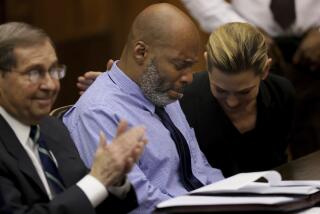Mideast Beckons NATO
What role for the North Atlantic Treaty Organization in the Iraq crisis and beyond? This question takes on special importance because of continuing doubts about the future of the alliance, U.S. skepticism about NATO allies’ military competence and the conduct so far of the war on terrorism. How it is answered will be critical in determining whether NATO will have a future at all.
On Sept. 12, 2001, of its own accord, NATO’s governing body invoked a provision in its charter that said if any member state was attacked, each of the others would take, “individually and with the other parties, such action as it deems necessary, including the use of armed force.”
This was an important and unprecedented step. The initiative came from NATO’s headquarters, out of solidarity with the U.S. but also to avoid being shunted aside at such a critical juncture. But U.S. leaders, leery of a “war by committee,” which some believed had slowed the 1999 conflict in Kosovo, declined a direct NATO role.
Allies did eventually take part in the war in Afghanistan, and several NATO nations have played some part in the overall effort to counter global terrorism.
But what about Iraq?
Even if the Bush administration secures broad allied support for either effective inspections or direct military action against Saddam Hussein’s regime, an alliancewide role for NATO can be ruled out.
Just as in the 1991 Persian Gulf War, the United States prefers to base both command and force structure on its own resources, and few allies have the modern combat equipment that would be required.
Indeed, the limited military capabilities of virtually all NATO allies but Britain have been at the heart of debate about NATO’s continued relevance. These limitations intrude even without considering the misgivings of some allies -- notably Germany -- about making war on Iraq.
But NATO will be involved, if only indirectly, simply because of the 53-year history of militaries working together, speaking the same language (English), following the same basic doctrines and developing habits of mind and action that have made Allied Command Europe the most effective joint command in history.
The test will come after the Iraq crisis is resolved, through inspections or by war. The aftermath must be ongoing Western engagement in the Middle East, including military power, far beyond anything so far conceived.
It is not in Washington’s interest to do this alone: Countries in the region would not want the U.S. to be so visible, and Americans surely would want direct and tangible support from allies.
Some of this would need to come in the form of rebuilding and reform, now in Afghanistan, later, possibly, in Iraq.
That is a task where forging a close U.S. strategic partnership with the European Union can be critical. But there also will be shared military responsibilities, including peacekeeping forces needed as a backdrop to political, economic and social change; to play a constabulary role; to combat terrorism; or to help democratize militaries, as NATO’s Partnership for Peace has done so effectively in the former Soviet empire.
Doing all this would show that NATO could meet the realities of 21st century security.
NATO should also look further ahead. At some point, Israelis and Palestinians will make peace, but it will be an uneasy peace. Outside military forces will be needed in the region to build confidence. That necessarily means U.S. forces, and this was understood as long ago as the Carter administration.
It can -- and should -- also mean NATO. The alliance should start planning for this eventuality now, which would help inspire confidence among Israelis and Palestinians that they will not be left to fend for themselves.
In wrapping up the strategic challenges of the 20th century, NATO still has a European vocation. For the 21st century, its vocation is in the Middle East, where it must prove its continued worth.
More to Read
Start your day right
Sign up for Essential California for news, features and recommendations from the L.A. Times and beyond in your inbox six days a week.
You may occasionally receive promotional content from the Los Angeles Times.






